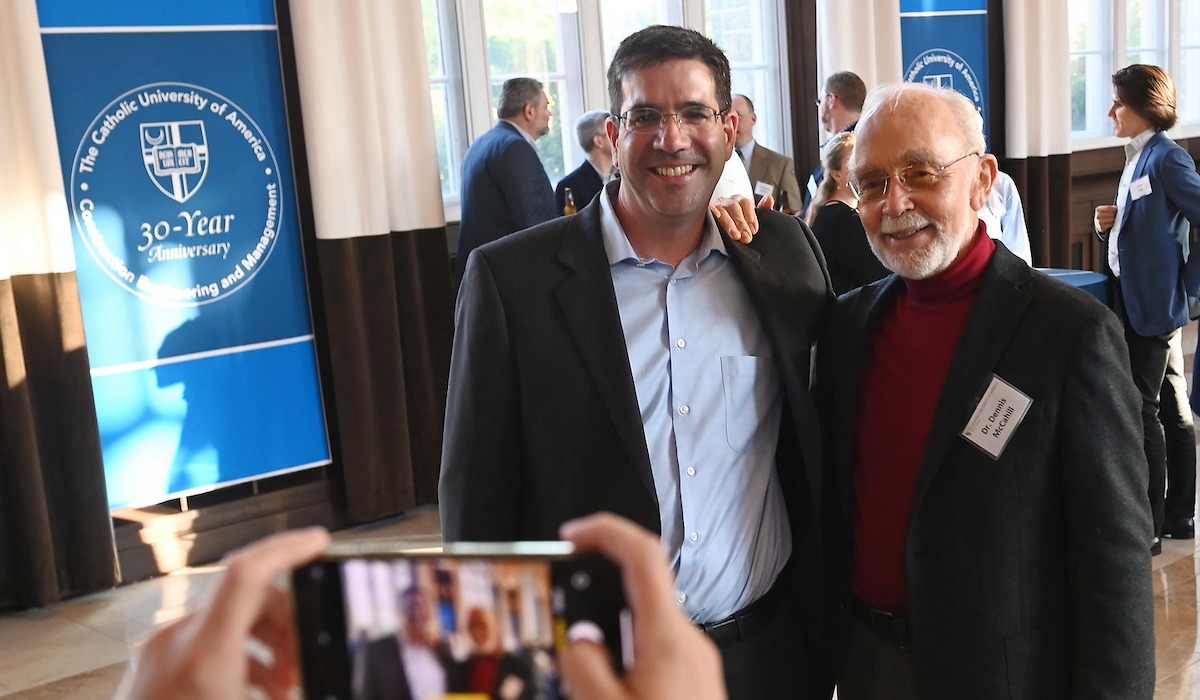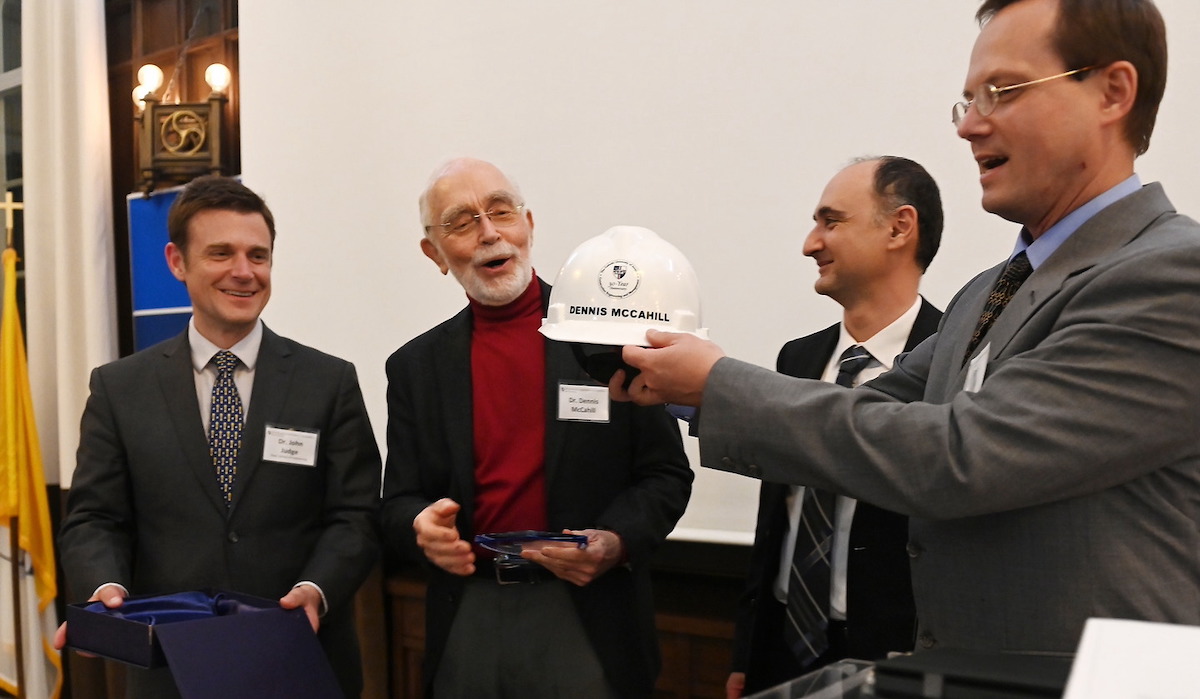

Just a few days after Commencement, the School of Engineering held another celebration to mark the 30th anniversary of the Construction Engineering and Management Program (CEM), and to celebrate the founder and former director, Dennis McCahill.
“I didn’t know that was a day that was going to change the rest of my life,” said Jon Clark, BCE ‘97, recalling a conversation he had with McCahill before he started college that convinced him to become an engineer. The current project executive for Manhattan Construction Company added, “I learned a passion for my industry…It’s not often you get to thank someone who has changed your life.”
Clark noted that his daughter is now a student at Catholic University and that Manhattan Construction has started a co-op program with the University’s engineering school, continuing his connection with the Construction and Engineering Program.
As other alumni spoke during the evening, the impact of McCahill on the program and on them emerged. They shared life lessons, quotes to remember, and skills they learned that went far beyond engineering — from how to shake hands to public speaking — that have helped them succeed in their careers.
McCahill’s commitment to ethics, high quality course content, small class sizes, and faculty support remain hallmarks of the program, which to date has prepared nearly 350 graduates for careers in construction management and engineering.
McCahill required and arranged summer internships that, in many cases, jumpstarted careers in construction management and construction engineering. In his own remarks, he noted the contributions of George Quinn, who provided seed money for the program as well as industry contacts.

L-R, John Judge, dean, School of Engineering; Dennis McCahill, founding director, CEM; Arash Massoudieh, professor and chair, civil engineering; and Gunnar Lucko, professor and director, CEM
Gunnar Lucko, professor of civil engineering, took over leadership of CEM in 2005. It has since grown into a full research program with students in undergraduate, master’s and doctoral programs and to retain close ties with alumni, many of whom return to recruit students for their companies, and with Mid-Atlantic industry professionals.
He spoke about how the program is adapting for the future, saying, “Educating construction professionals for the 21st century must … build the ability to solve complex challenges through critical thinking, analytic decision-making, creativity, and integrity. It must be grounded in the engineering fundamentals, kept relevant with lifelong learning, and manage risk and expectations for all stakeholders within sustainable development and globalization.”
Funding from the National Science Foundation, Charles Pankow Foundation and other entities is supporting CEM research into new ways to model, analyze, and optimize the time, cost, resources and operations of construction projects as the program continues to prepare graduates with new skills for a changing field.
Lucko thanked Manhattan, Bozzuto Construction Company, and Whiting-Turner Contracting Company for their co-op programs with Catholic University, and Whiting-Turner, Consigli Construction Company, John Moriarty and Associates, and Gilbane Building Company for their sponsorship of the April 2022 Climate Change and the Future of Work Conference.
Clearly touched by the evening’s tributes, McCahill offered his former students a few more life lessons, ending with, “Truth. Honesty. Integrity. Never cheat anyone. Never cut corners on anybody. Treat your clients as you would like to be treated. In the long run it will always be to your advantage to behave in that manner. And that’s one of the reasons that the reputation of this program is as good as it is. There’s you people sitting in this room embodying those characteristics and I’m proud of all of you.”